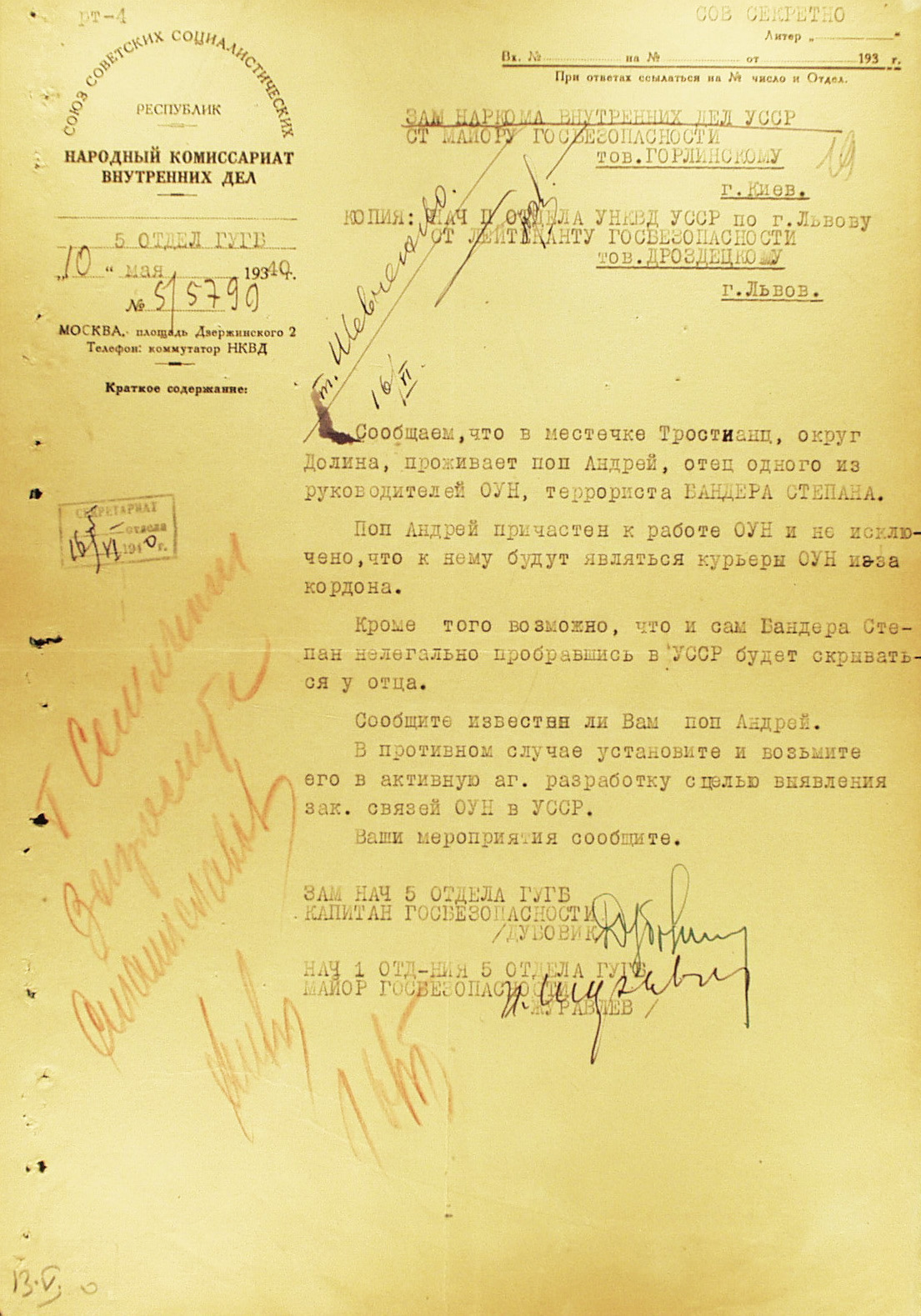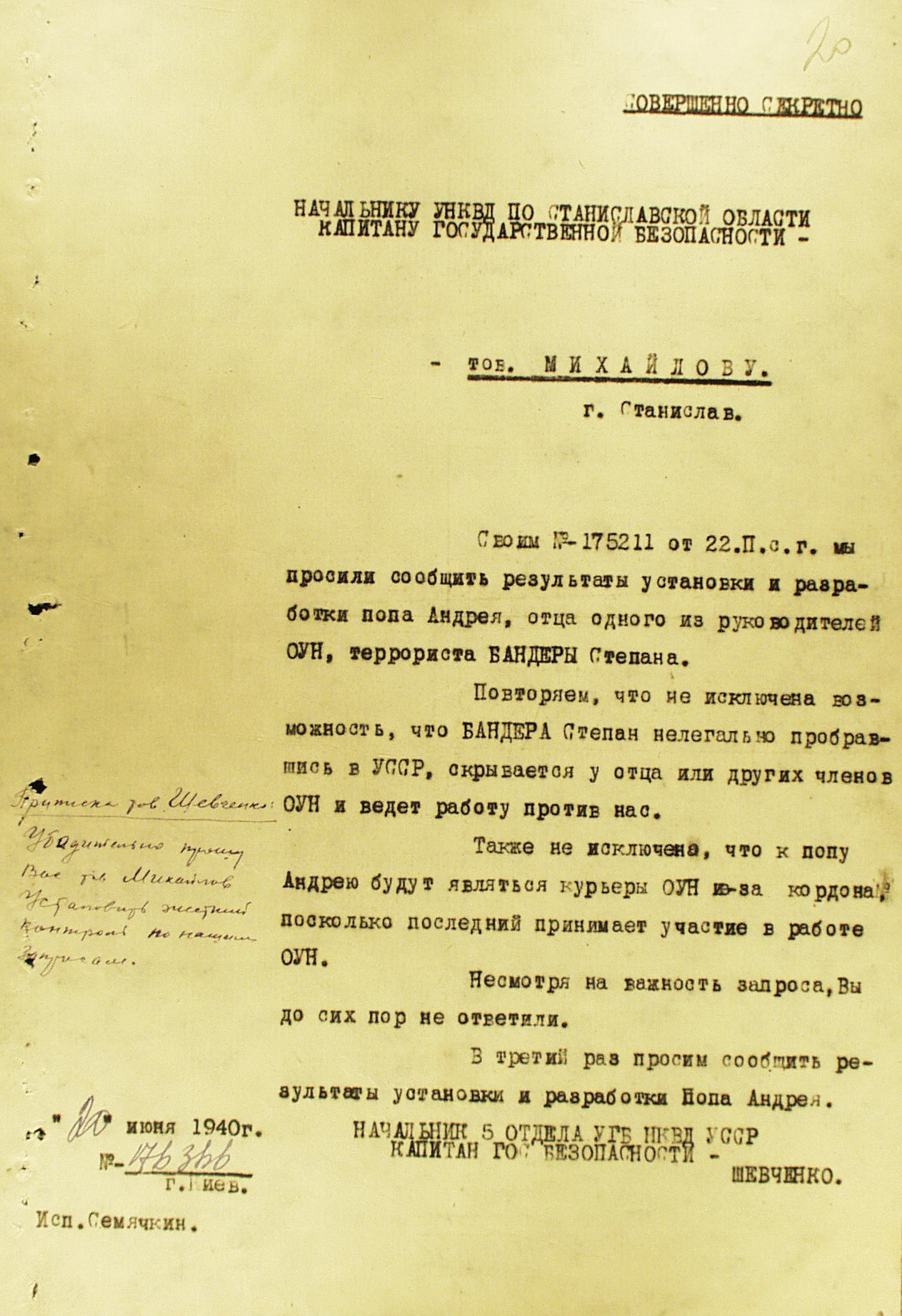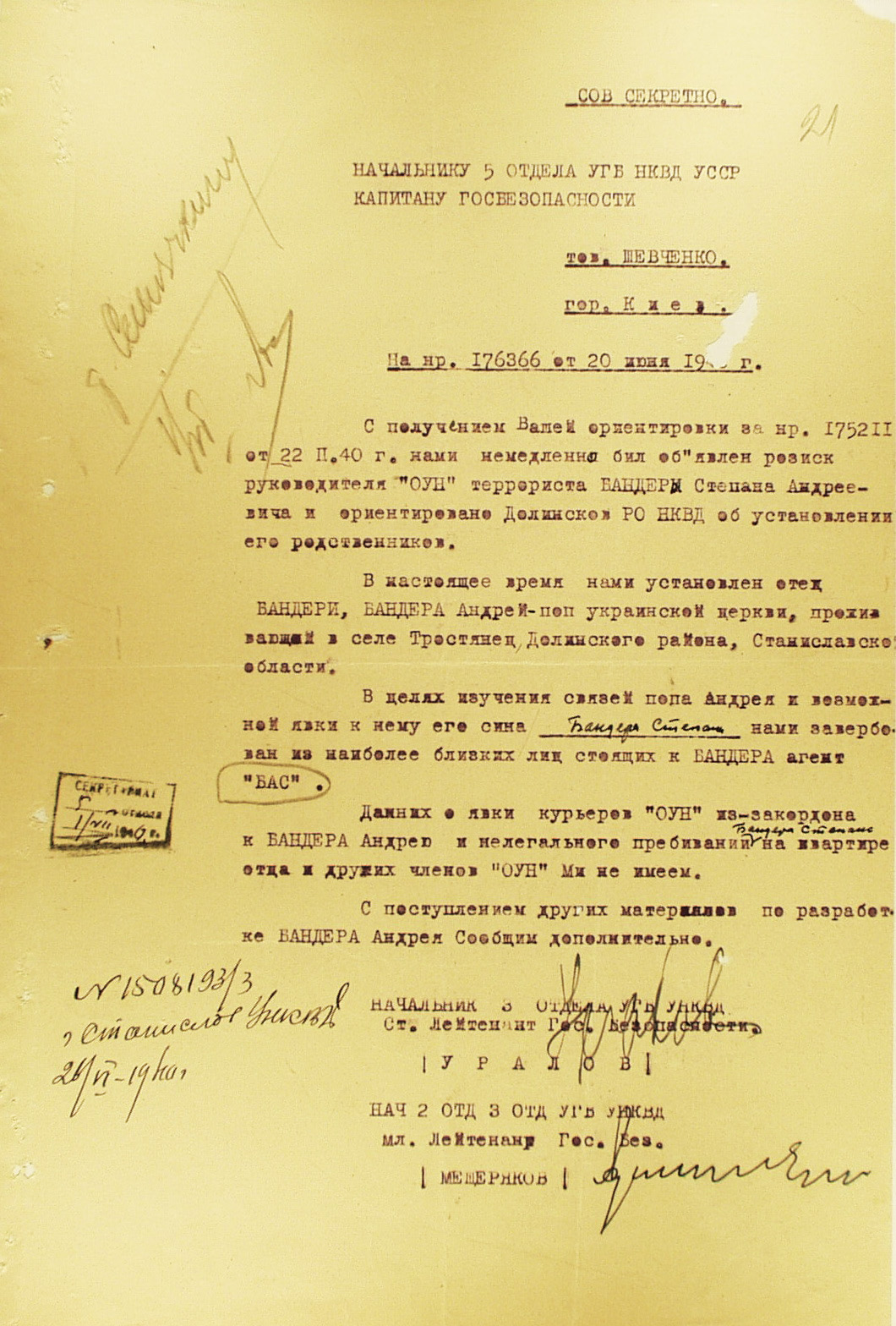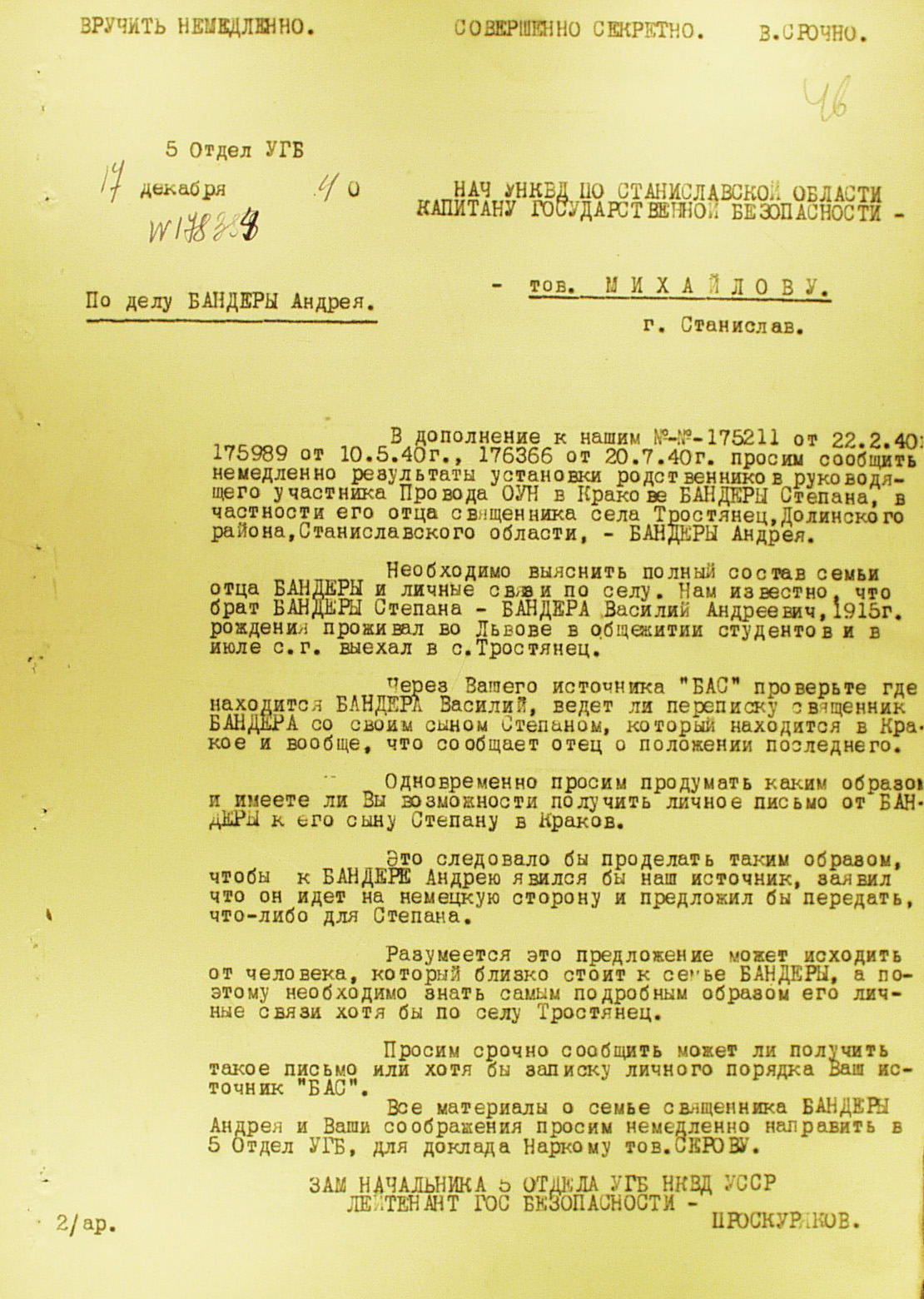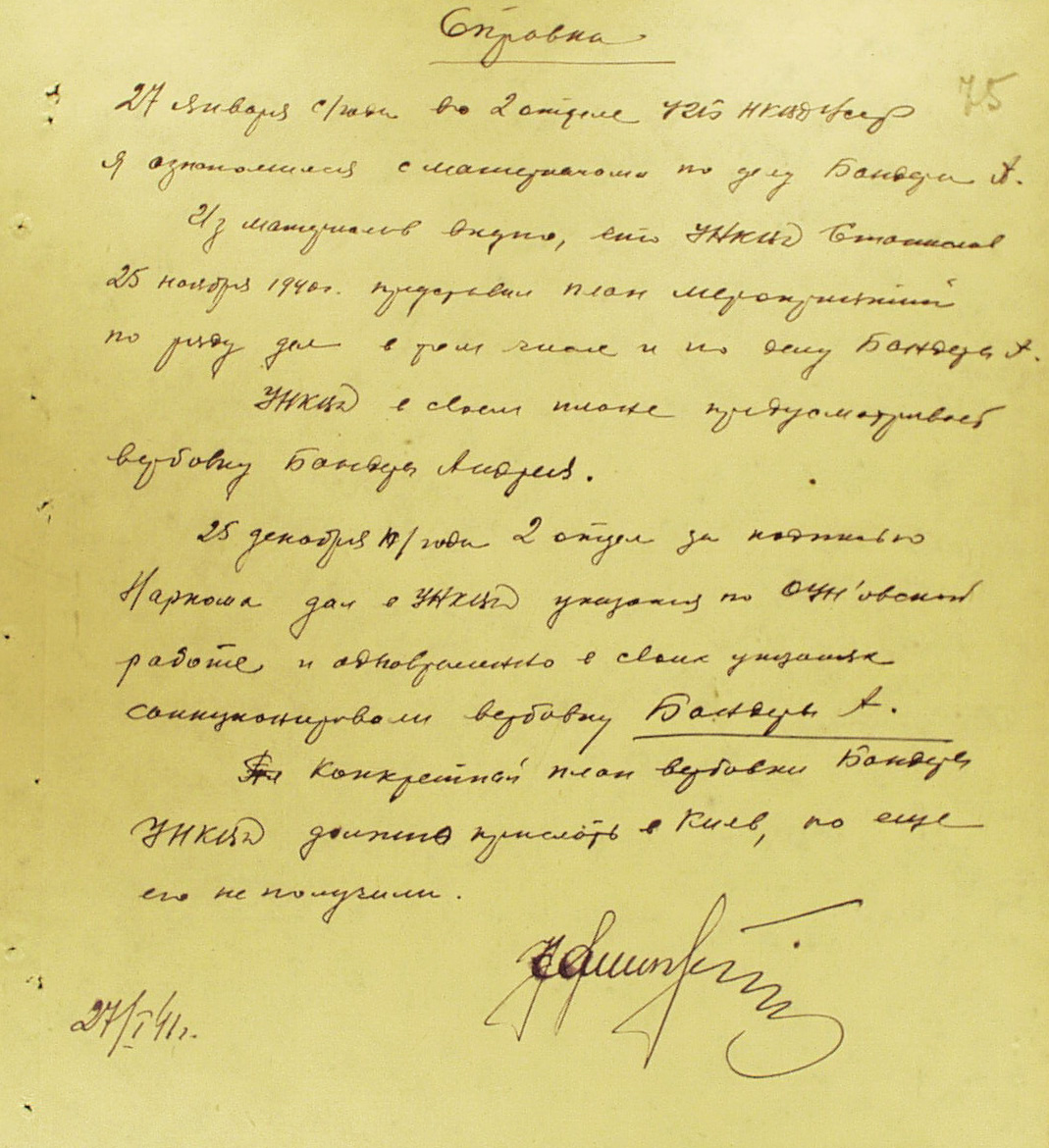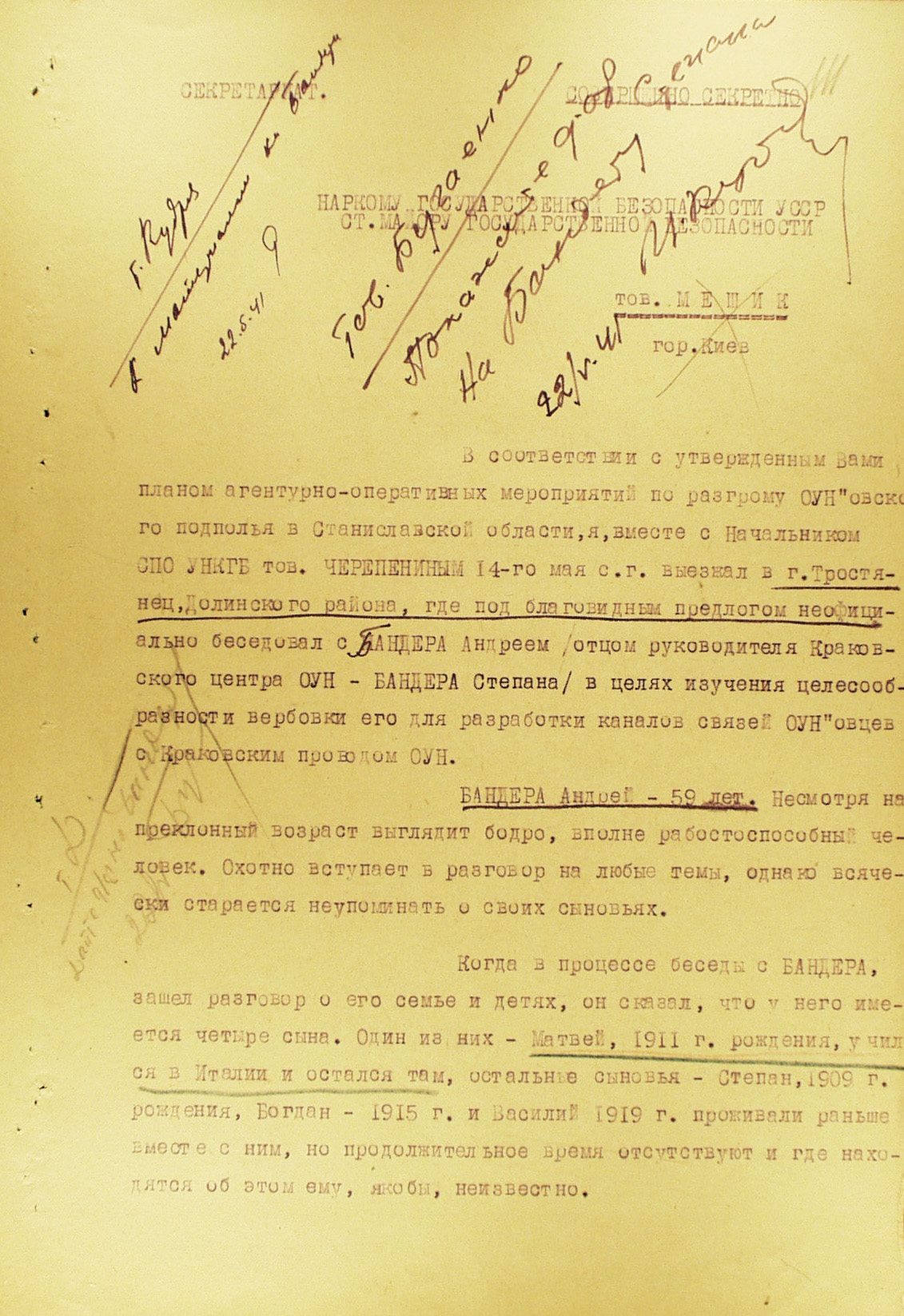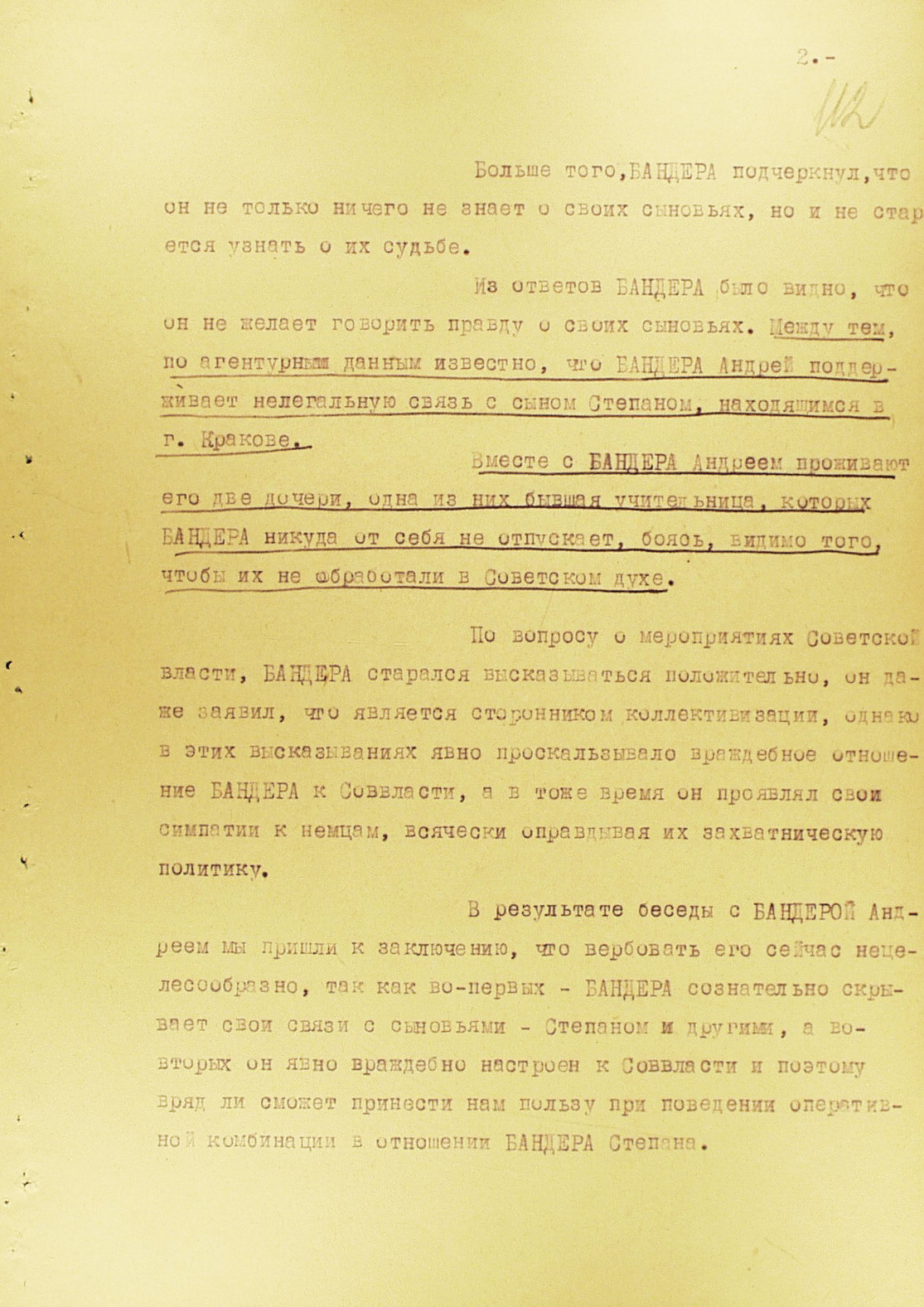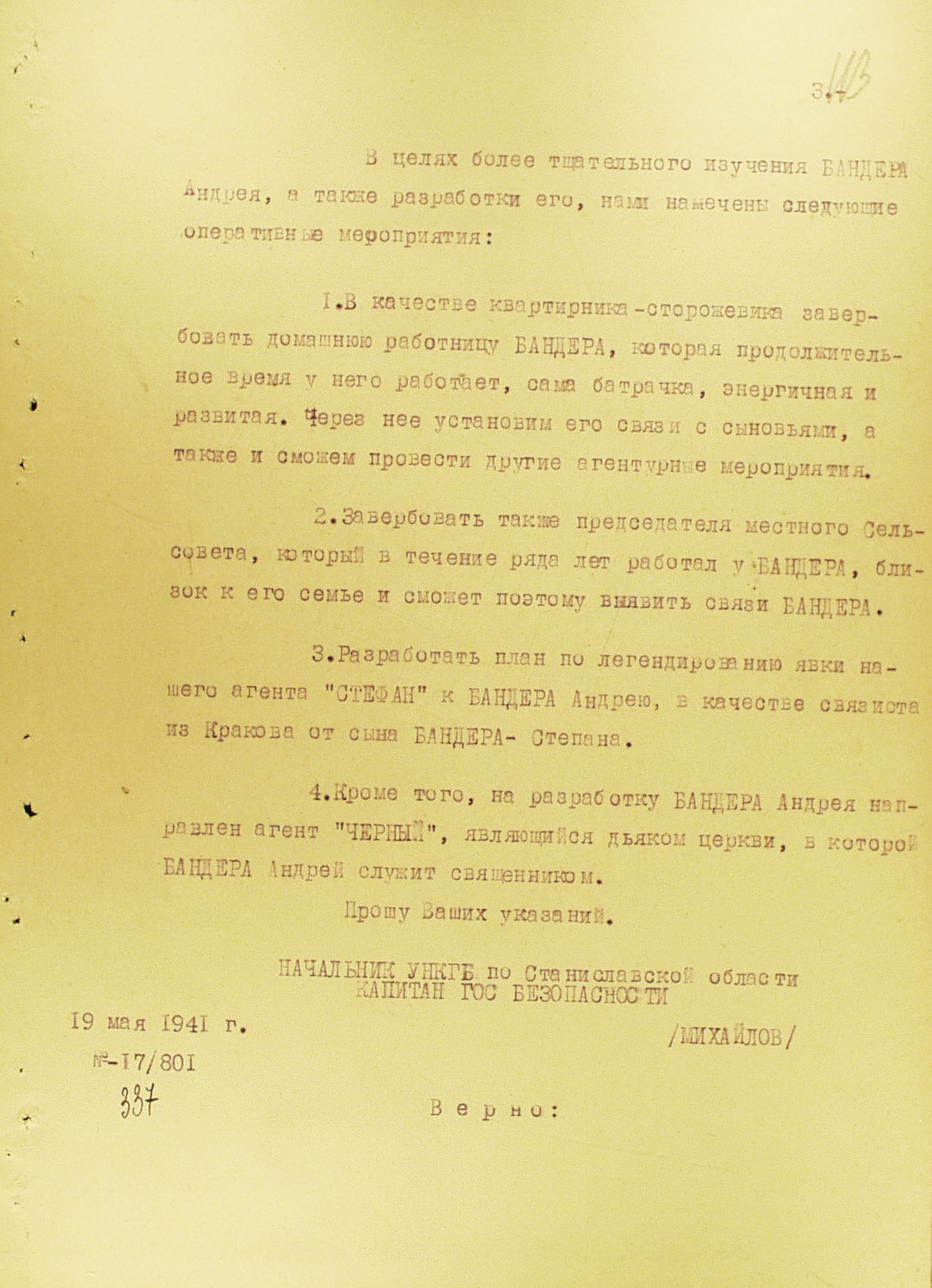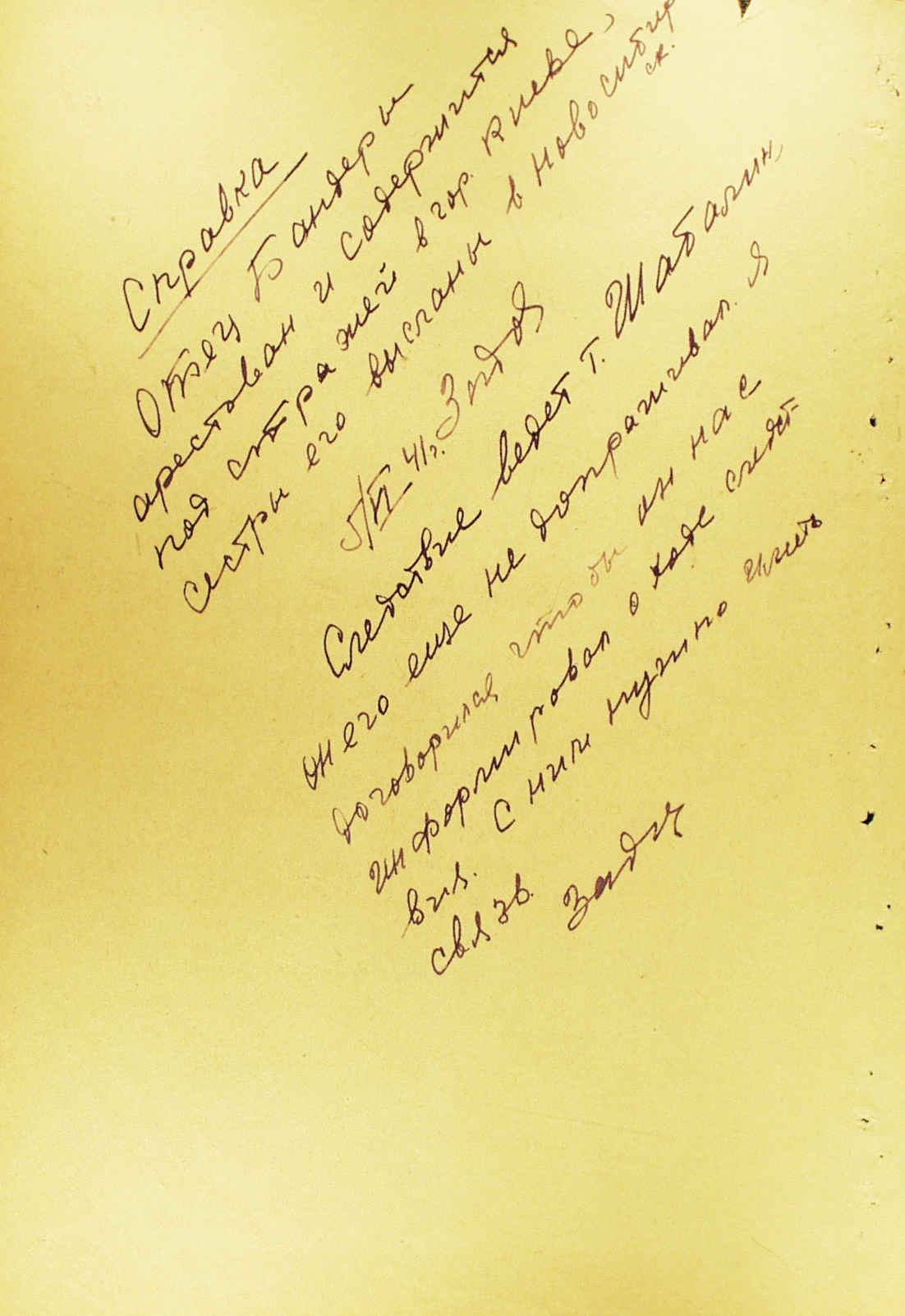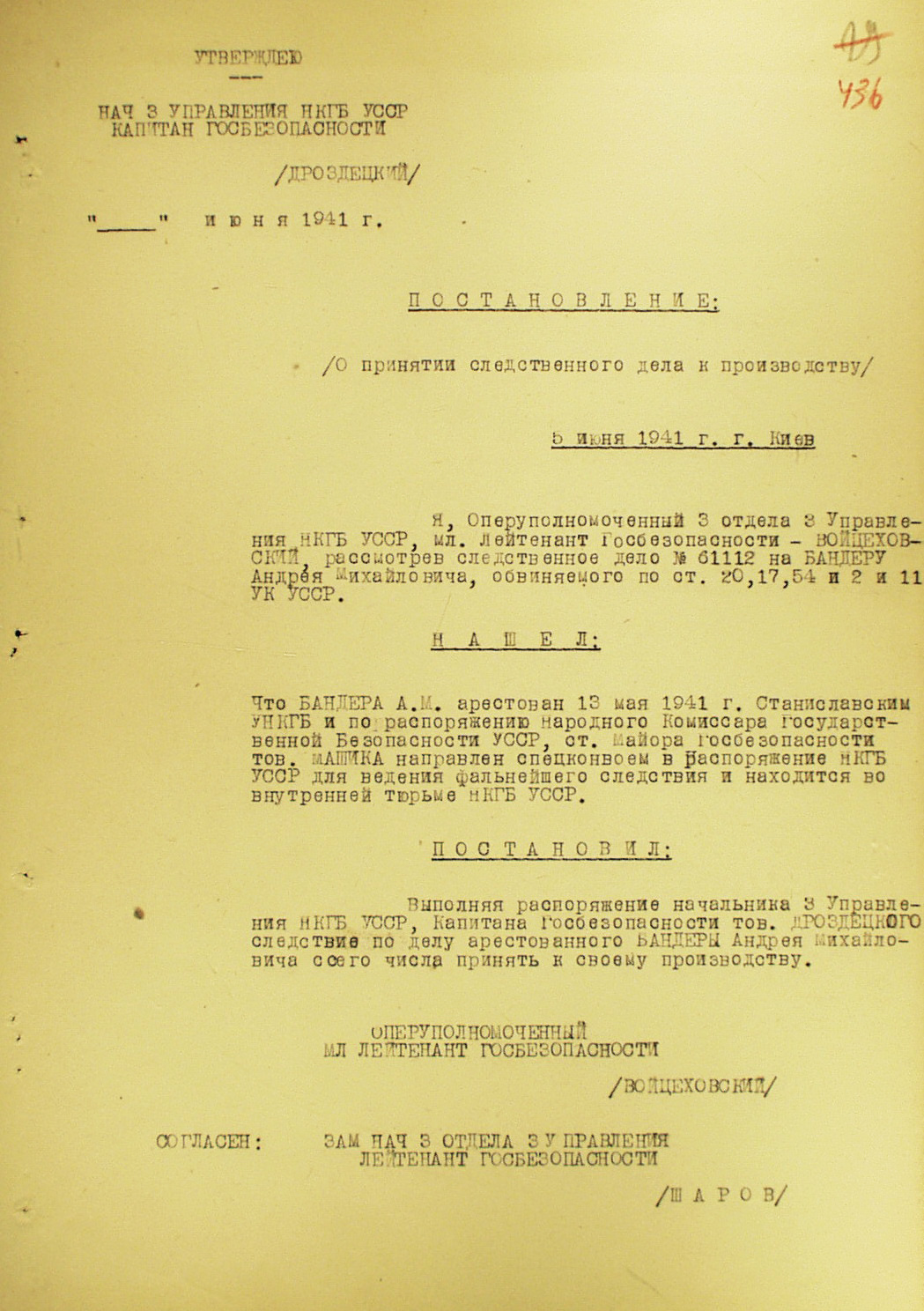Andriy Bandera. A Father Punished for His Son
9/5/2024
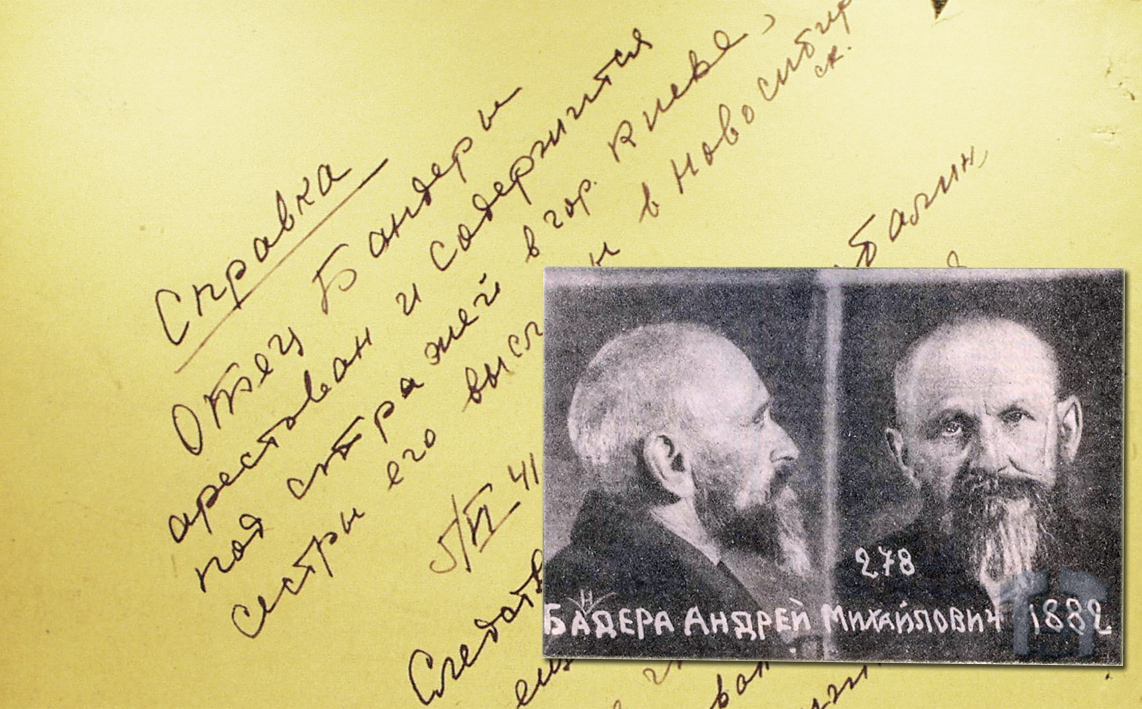
In the case file on Stepan Bandera, which is stored in the archives of the Foreign Intelligence Service of Ukraine, there are a number of documents relating to his father, Father Andriy. This is a dramatic story of how the chekists switched their hatred for one of the leaders of the Ukrainian liberation movement to his close relatives. At the same time, it is also an example of the strength of the spirit of a person who did not break under the pressure of the totalitarian system, did not give up his ideological beliefs, and did not become an obedient tool of influence, as was planned at the highest level of the nkvd. The documents found in the archives of the Intelligence Service shed light on new, hitherto unknown episodes of this story.
The first mention in the Intelligence archives of the chekists' specific operational interest in Stepan Bandera's father dates May 10, 1940. It was then that a letter was sent from moscow, from the central office of the nkvd of the ussr, to the leadership of the nkvd of the Ukrainian ssr with instructions to begin agent cultivation of Andriy Bandera:
“We inform you that in the town of Trostianets, Dolyna district, there lives a clergyman Andriy, the father of one of the OUN leaders, terrorist Stepan Bandera.
Priest Andriy is engaged in the work of the OUN, and it is possible that he will be visited by OUN couriers from abroad.
Besides, it is possible that Bandera Stepan himself will illegally enter the Ukrainian ssr and hide at his father's.
Let us know if you know priest Andriy.
If you don’t, identify him and start his active cultivation in order to find out the OUN in Ukrainian ssr’s ties with abroad”.
(BSA of the SZR of Ukraine. - F.1. - Case 10876. - Vol. 1. - P. 19).
At that time, Andriy Bandera had been living in the village of Trostianets, Dolyna district, Stanislav (now Ivano-Frankivsk) region, for five years. He served in the local parish of the Ukrainian Greek Catholic Church. According to eyewitnesses, he quickly found a common language with his flock and gained great authority. He was highly educated and intelligent, and his home became a center of Ukrainian national life.
Having graduated from the gymnasium in Stryi, Andriy Bandera studied at the Faculty of Theology at Lviv University. After graduation, he married Myroslava Hlodzinska, who came from an ancient Galician family of clergymen. In 1906, he was ordained a priest by Andrey Sheptytskyi, Metropolitan of the Ukrainian Greek Catholic Church. He was a member of the Taras Shevchenko Scientific Society. During the Western Ukrainian National Republic, he was elected Ambassador of the Ukrainian National Council of the Western Ukrainian People’s Republic in Stanislaviv. Soon he became a chaplain of the Ukrainian Galician Army. After returning from the fronts of the First World War, he served as a parish priest in rural churches. He kept a blue and yellow flag preserved from his chaplaincy days.
In 1922, his 34-year-old wife died of throat tuberculosis, leaving behind eight children. Soon after, his youngest baby daughter died. Father Andriy made every effort to ensure that his children received a good education. At the time of the nkvd's interest in him, his daughters Marta and Oksana lived with him. Stepan Bandera was in Krakow and had already been elected head of the Organization of Ukrainian Nationalists (Revolutionary).
First of all, the chekists wanted to know whether the father and son corresponded and the content of that correspondence. They also tried to get a letter or at least a note from him to Stepan. “This should be done in such a way,” says one the documents, “that our agent visits Andriy Bandera, says that he is going to the German side, and offers to pass over something to Stepan”. But such a person still had to be found. So the task was to thoroughly study all the people around Father Andriy and find the right person. At the end of the document it was stated: “Please send all materials about priest Andriy Bandera’s family and your thoughts immediately to the 5th Department of the Directorate of State Security for a report to people's commissar comrade Serov” (BSA of the SZR of Ukraine. - F.1. – Case 10876. - Vol. 1. - P. 46).
Thus, according to archival documents, this case was under the personal control of the then chief of the nkvd of the Ukrainian ssr Ivan Serov, who had to immediately inform moscow about the progress of the operational cultivation. The first reports said that Father Andriy was behaving suspiciously. This, according to the chekists, was because he “did not show open dissatisfaction with the soviet government, but there were times when he would serve a mass during soviet events”. In particular, on the day of the election, despite the insistence of the head of the village council to cancel the service, he disobeyed and served the mass.
In order to somehow mitigate this discontent and prepare the ground for establishing the necessary contact, the Chekists recommended through local authorities that he be reduced in agricultural, cultural, and income taxes, and partially exempted from road repairs, timber removal, and other work. After that, they planned to try to recruit him. “On December 25 of this year”, says one of the documents, “the 2nd Department gave instructions (signed by the People's Commissar) to follow the OUN line and at the same time authorized the recruitment of A. Bandera. The nkvd should send to Kyiv a specific plan for recruiting Bandera, but it has not yet been received’ (GDA SZR of Ukraine. - F.1. - Case 10876. - Vol. 1. - L. 75).
According to archival documents, from the very beginning the chekists were not sure that they would succeed. Therefore, on May 14, 1941, chief of the Stanislav region's nkvd, Captain Mikhailov, and chief of the secret political department, Cherepenin, went to the village of Trostyanets to study the feasibility of recruiting Father Andriy. At the village council they introduced themselves as officials from the regional centre. The aim of the visit was also invented. They also found a reason to meet with Father Andriy in the church. The report on that meeting states that he willingly talked about lots of things, but when it came to his sons, he became taciturn.
“When the conversation with Bandera turned to his family and children”, says the report, “he said that he had four sons. One of them, Matviy, born in 1911, studied in Italy and stayed there, the other sons, Stepan, born in 1909, Bohdan, born in 1915, and Vasyl, born in 1919, used to live with him, but have been absent for a long time and he allegedly does not know where they are”.
In general, from the conversation with Father Andriy, the chekists concluded that he did not want to tell the truth about his sons, especially about Stepan, with whom, according to the agents’ reports, he maintained illegal contact. “As a result of the conversation with Andriy Bandera”, the document states, “we concluded that it is inexpedient to recruit him now, since, firstly, Bandera deliberately conceals his ties with his sons, Stepan and others, and secondly, he is obviously hostile to the soviet power and therefore can hardly be useful in conducting an operational combination regarding Stepan Bandera” (BSA of the SZR of Ukraine. - F.1 Case 10876. - Vol. 1. - P. 111-113).
But the operational cultivation did not stop there, and a number of other measures were planned. Among them was the involvement of the head of the village council, the watchman, the church cantor, and other assistants and close friends of Father Andriy. Through them, the nkvd intended to collect further information about him. They also wanted to develop a plan to legitimize a special agent who allegedly came from Krakow on behalf of Bandera’s son Stepan. And thus to start an operational game. But an order from above changed everything.
On May 22, 1941, Andriy Bandera and his two daughters were arrested. Marta and Oksana were immediately sent to Siberia. Their father was soon placed in the internal prison of the nkvd in Kyiv at 33, Volodymyrska Street. Archival documents mention that Father Andriy's escorting was carried out on the personal order of chief of the nkvd of the Ukrainian ssr, Pavlo Mieshyk.
Further developments and the course of the investigation are known from the already published documents of the archival investigation file. At the same time, the archives of the Foreign Intelligence Service of Ukraine in the case of the operational cultivation of Stepan Bandera contain a number of copies of interrogation protocols of Father Andriy, made on a typewriter, as well as handwritten originals. They show that the prisoner behaved with dignity, not hiding his views and beliefs.
In particular, during interrogation on June 9, 1941, he was asked: “In what language do you wish to testify?” He replied: “I will testify in Ukrainian”. Then they asked: “What political beliefs do you hold?” “My beliefs are those of a Ukrainian nationalist”, Father Andriy replied, ”I believe that the only right state system for Ukrainians is a united, independent Ukraine”.
In the interrogation report of June 12, 1941, this topic was continued. The paper reads as follows: “Question: “So you are also a member of the anti-soviet nationalist organization OUN?” Answer: “No, I am not an official member of the OUN for religious and ecclesiastical reasons as a person who, by his position as a priest, must agree with the principle that “every authority is from God”, but as a Ukrainian nationalist I understand that an independent Ukrainian state can be built through the armed struggle of Ukrainian nationalists against the soviet government. That is why I agree with all the provisions of the OUN” (BSA of the SZR of Ukraine. - F.1. – Case 10876. - Vol. 2. - P. 437-441).
The thesis that Bandera “as a convinced Ukrainian nationalist actively assisted the OUN underground in conducting counter-revolutionary work against the ussr” is also included in the indictment along with a number of other charges. These included hiding a terrorist and enemy of the soviet government in his home, assisting his daughter Marta in conducting anti-soviet activities, and complicity in the illegal transportation of his son Bohdan from the ussr to Germany. At the same time, everyone understood that his main “guilt” was that he was the father of the leader of the OUN (r), Stepan Bandera.
Father Andriy was sentenced on July 8, 1941, to being shot without confiscation of property in the absence of any. The sentence was executed on July 10. No information about the place of burial has been found in the archives of the Intelligence Service. Andriy Bandera was rehabilitated in November 1992.
